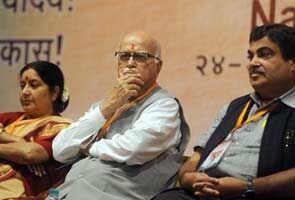
New Delhi:
Whether the new reforms in pension and insurance sectors approved by the government will translate into reality could depend on the stand of the BJP. The cabinet cleared 49 per cent Foreign Direct Investment or FDI for both key areas last evening, but the new policies have to be cleared in Parliament to become law.
Finance Minister P Chidambaram last evening talked of room for "discussion and negotiations." He said, "Many bills have been passed after discussion with the opposition, particularly the main opposition party." The BJP first said that it would like to study the fine print of the reforms. Prakash Javadekar also pointed out that in the past, when the BJP-led NDA government was in power, the Congress had opposed reforms to allow more FDI in retails.
The BJP is key because the Left, Mamata Banerjee, and some of the government's own allies are against FDI - Mulayam Singh Yadav, for example, who is helping prop up the government after it was reduced to a minority when Ms Banerjee and her Trinamool Congress left the coalition over the last big-ticket reforms which included raising diesel prices and allowing foreign retail mega-chains like Wal-Mart to set up shop in India.
Today, the Trinamool leader renewed her call to move a non-confidence motion in Parliament. But Mr Yadav's Samajwadi Party has said that it will not destabilise the government in any way. More significantly, the BJP is sticking to its wait-and-watch policy on this one, unsure if a non-confidence motion will get the support from enough parties to make the government fall.
The DMK, the second-largest member of the coalition after Ms Banerjee's exit, is also opposed to FDI.
While the UPA could push the reforms through in the Lok Sabha, it is in a minority in the Rajya Sabha.
On insurance reforms, Mr Javadekar pointed out that a parliamentary committee headed by BJP leader and former Finance Minister Yashwant Sinha recommended earlier this year that the cap on FDI should not be increased beyond the current 26 per cent. The committee was unanimous in this opinion which means that the 13 Congress MPs on the panel were also against a change in policy.
The BJP will have to weigh the implications of being seen as anti-reform by the middle class voter, traditionally loyal to the party. It has fought FDI in retail because shopkeepers and traders are traditionally BJP supporters.
Its opposition for FDI and reforms will have to nuanced, depending on the sector affected (as it has in FDI in retail). This might not be the most cogent position to offer to an average voter. It will also have to manage its own allies. The JD(U) for example, a crucial ally in Bihar and the party of Nitish Kumar, is dead opposed to FDI and reforms.
Finance Minister P Chidambaram last evening talked of room for "discussion and negotiations." He said, "Many bills have been passed after discussion with the opposition, particularly the main opposition party." The BJP first said that it would like to study the fine print of the reforms. Prakash Javadekar also pointed out that in the past, when the BJP-led NDA government was in power, the Congress had opposed reforms to allow more FDI in retails.
The BJP is key because the Left, Mamata Banerjee, and some of the government's own allies are against FDI - Mulayam Singh Yadav, for example, who is helping prop up the government after it was reduced to a minority when Ms Banerjee and her Trinamool Congress left the coalition over the last big-ticket reforms which included raising diesel prices and allowing foreign retail mega-chains like Wal-Mart to set up shop in India.
Today, the Trinamool leader renewed her call to move a non-confidence motion in Parliament. But Mr Yadav's Samajwadi Party has said that it will not destabilise the government in any way. More significantly, the BJP is sticking to its wait-and-watch policy on this one, unsure if a non-confidence motion will get the support from enough parties to make the government fall.
The DMK, the second-largest member of the coalition after Ms Banerjee's exit, is also opposed to FDI.
While the UPA could push the reforms through in the Lok Sabha, it is in a minority in the Rajya Sabha.
On insurance reforms, Mr Javadekar pointed out that a parliamentary committee headed by BJP leader and former Finance Minister Yashwant Sinha recommended earlier this year that the cap on FDI should not be increased beyond the current 26 per cent. The committee was unanimous in this opinion which means that the 13 Congress MPs on the panel were also against a change in policy.
The BJP will have to weigh the implications of being seen as anti-reform by the middle class voter, traditionally loyal to the party. It has fought FDI in retail because shopkeepers and traders are traditionally BJP supporters.
Its opposition for FDI and reforms will have to nuanced, depending on the sector affected (as it has in FDI in retail). This might not be the most cogent position to offer to an average voter. It will also have to manage its own allies. The JD(U) for example, a crucial ally in Bihar and the party of Nitish Kumar, is dead opposed to FDI and reforms.
Track Latest News Live on NDTV.com and get news updates from India and around the world

